Ngũgĩ wa Thiong’o is odds-on favourite to win the Nobel Prize in Literature this week. The JRB’s Editor Jennifer Malec looks at the prize rules and history to determine the likelihood of a fifth win for Africa.
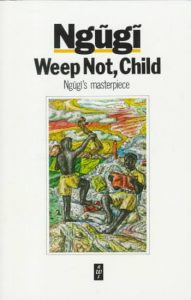
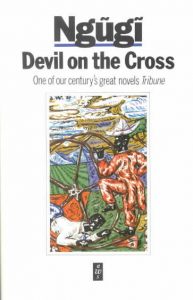
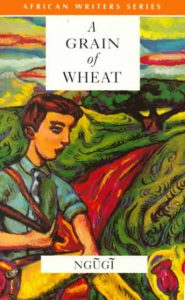
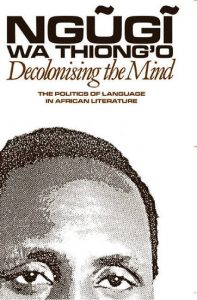
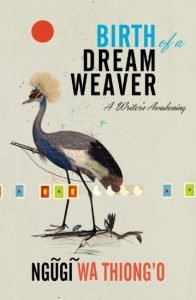
In what is in danger of becoming a cruel joke, Ngũgĩ wa Thiong’o is again the favourite to win the Nobel Prize in Literature.
The Nobel Prize in Literature will be announced by the Swedish Academy in Stockholm, Sweden, on Thursday, 5 October, and the Kenyan author is the odds-on favourite at both betting giants NicerOdds (9/2) and Ladbrokes (4/1).
However, before you lay your money down, bear in mind that Ngũgĩ has been among the frontrunners every year at the bookies since 2010. Although perennial contenders Haruki Murakami, Joyce Carol Oates, Philip Roth, Amos Oz, Don DeLillo and Adonis have been in the mix slightly longer, their chances are usually also given longer odds.
In 2015, a frustrated Murakami addressed his almost constant status as a favourite on his blog: ‘It’s a bit annoying,’ he wrote. ‘It isn’t like there’s an official shortlist, it’s just private bookmakers coming up with these odds. It’s not as if this were a horse race.’
The fact that Ladbrokes cut Margaret Atwood’s odds following The Handmaid’s Tale’s Emmy Award win two weeks ago highlights just how unreliable and skittish Nobel betting is: the more popular a bet, the less valuable it is, and what fuels popularity is public interest. As the members of the Swedish Academy have indicated over and over again, to an almost loutish degree in recent years, public opinion has no effect on their decision. If the common reaction to Patrick Modiano’s win in 2014 was ‘who?’, the common reaction to Bob Dylan’s win last year was ‘what?’
Predictions are made all the more difficult by the fact that the instructions for the prize that Alfred Nobel left in his will are maddeningly vague: he stated that his prizes should go to people who, during the preceding year, ‘shall have conferred the greatest benefit to mankind’, and, specifically in the field of literature, the person who ‘shall have produced the most outstanding work of an idealistic tendency’. The meaning of the word ‘ideal’ has been debated endlessly, for over a hundred years.
In addition to this, the Academy does not deign to publish a shortlist, or even a longlist. If you want to nominate a writer, you need to be a ‘qualified person’. How will you know you are a qualified person? The Swedish Academy will send you a letter informing you that you are.
For the 2017 edition of the prize, the Swedish Academy has ‘received and approved 240 proposals, resulting in 195 candidates’. But all information concerning the nominations and selections of the Nobel Laureates is kept secret for fifty years. So, for example, we are now able to see whose nominations were considered ‘most relevant’ for the 1966 prize; the five priority candidates were: Yasunari Kawabata; Samuel Joseph Agnon and Nelly Sachs; Graham Greene; WH Auden and Samuel Beckett. If we’re honest, however, some of the excitement has worn off by this stage.
Then there is the question of the Swedish Academy. Who are they, and what qualifications do they have to decide who is the best writer in the world?
The Academy was founded in 1786 by Swedish King Gustav III, who originally wanted there to be twenty members, for the excellent reason that that would be ‘half the number of those in the French Academy’. However, he eventually decided on eighteen members, for the much more reasonable reason that: ‘the Swedish word for that number had such a fine ring’.
Membership of the Swedish Academy—‘The Eighteen’—is for life, and election is by secret ballot. Before a new member is accepted, their name must be ‘submitted to the Academy’s Patron, the King, for his approval’. Traditionally most members were ‘important officials’, but now writers represent more than half, with the remainder made up of linguists, literary scholars, historians and a ‘prominent jurist’. Since 1786 , just nine women have been admitted to the Academy. Of the 113 laureates honoured since Frenchman Sully Prudhomme won in 1901, only 14 have been women.
The cloak-and-daggers atmosphere makes it difficult to figure out just how competent the Academy members are to judge the world’s most prestigious literature prize.
A case in point is the fact that despite Alfred Nobel’s instructions that, for all his bequeathed prizes, ‘no consideration whatever shall be given to the nationality of the candidates’, the only African writers to have won the Nobel Prize in Literature are Naguib Mahfouz (1988), Wole Soyinka (1986), Nadine Gordimer (1991), JM Coetzee (2003) and, arguably, Albert Camus (1957), who was born in what was then French Algeria (now Algeria), and Doris Lessing (2007), who was born in what was then Persia (now Iran) but spent much of her life in Southern Rhodesia (now Zimbabwe).
The awarding of the Nobel Prize in Literature is accompanied by a one-line ‘motivation’ of such brevity that those of us attempting to guess at future winners are tempted to turn to FR Leavis for analytic advice. However, a common thread runs through the motivations given for all previous African winners, and it does not bode well for Ngũgĩ:
Mahfouz: ‘who, through works rich in nuance – now clear-sightedly realistic, now evocatively ambiguous – has formed an Arabian narrative art that applies to all mankind’.
Soyinka: ‘who in a wide cultural perspective and with poetic overtones fashions the drama of existence’.
Gordimer: ‘who through her magnificent epic writing has—in the words of Alfred Nobel—been of very great benefit to humanity’.
Coetzee: ‘who in innumerable guises portrays the surprising involvement of the outsider’.
In all of these motivations, the political, the nationalistic and the African are stripped away, as if these writers operate in some kind of literary twilight zone, from where their work flows to ‘all mankind’, to all ‘humanity’. At the time of Soyinka’s award, Academy Secretary Sture Allén praised the Nigerian writer for his ‘poetical plays that are deeply rooted in the African soil, but [which] have universal perspectives‘. Even while the Academy acknowledged Coetzee’s portrayal of the ‘outsider’, they emphasised, paradoxically, that outsider’s ‘surprising involvement’—involvement in, it is implied, the same ‘universal humanity’ that was central to the other motivations.
Ngũgĩ’s published his first novel, Weep Not, Child, as James Ngugi in 1964; it was the first novel in English by a writer from East Africa. His second novel, The River Between, was published in 1965 while he was at the University of Leeds in England. After his third novel, 1967’s A Grain of Wheat, he changed his name back to Ngũgĩ wa Thiong’o, and began to write exclusively in his native Gikuyu and Swahili. In 1977, his play Ngaahika Ndeenda (I Will Marry When I Want) angered authorities, and he was imprisoned. He wrote the first modern novel in Gikuyu, Caitaani mũtharaba-Inĩ (Devil on the Cross), on prison toilet paper.
Mahfouz, Soyinka, Gordimer and Coetzee are all writers whose work is steeped in the political. But for Ngũgĩ, whose bravery and significance are unparalleled, and whose dedication to the now rare belief that writing can alter reality is awe-inspiring, a stronger metaphor is needed.
Ngũgĩ’s most recent book, Birth of a Dream Weaver: A Writer’s Awakening, published in November 2016, is an angry, eloquent memoir covering the four years between 1959 and 1964. In it he details how he found his voice as a writer against a background of political violence, while much of East Africa was gaining independence.
In his speech at Wits University earlier this year, ‘Secure the base, decolonise the mind’, Ngũgĩ spoke about the ‘power relationship between the language of the conqueror and the language of the vanquished’, and asked whether, after fifty years, we have ‘regained the cu
‘We can only see ourselves through European eyes, at the minimum,’ he said. ‘This makes us look at Africa with the eyes of an outsider, thus in effect giving up on our responsibility to secure the continent for African people.’
Ngũgĩ argued that the ‘metaphysical empire’, the ’empire of the mind’, has outlived the physical empire in Africa, where today the very people defending the dominance of European languages are African intellectuals and policymakers themselves. At the same time, however, Ngũgĩ warned against ‘retreating into linguistic self-isolation’, saying there is ‘nothing wrong in wanting to take English or any other language as one’s own’.
‘I have always argued that each language, big or small, has its unique musicality; there is no language, whose musicality and cognitive potential, is inherently better than another,’ he said. But he insisted that the strengthening of African languages would create ‘an Africa secure in its base’, able to engage confidently with other peoples and continents.
Will the Academy have the ability—or the inclination—to find the ‘universal humanity’ in the work Ngũgĩ has produced ‘during the preceding year’? As any African will tell you, it is there. We will have to wait till Thursday for our answer.
- Jennifer Malec is the Editor; follow her on Twitter





